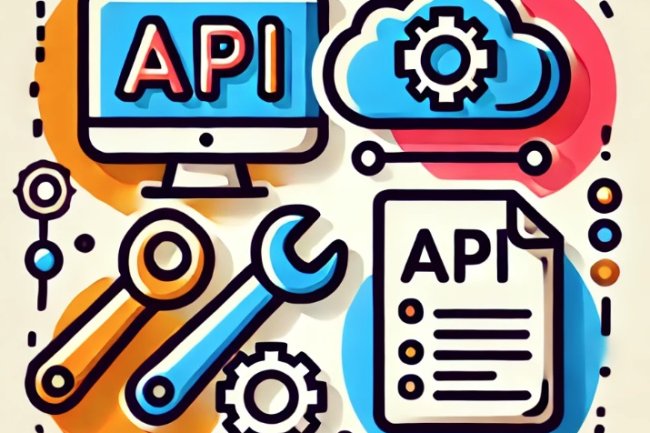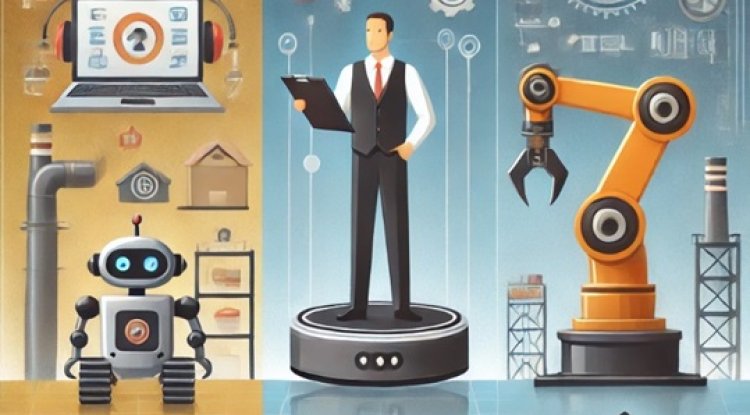The Future of Business in a Gen AI World: Differentiation in the Age of Universal Adoption
In a future where Gen AI is ubiquitous, differentiation will be the key to success. Companies will need to focus on personalization, ethics, innovation, human-AI collaboration, data sovereignty, and sustainability to stand out in a crowded market. By embracing these strategies, businesses can not only survive but thrive in the age of universal Gen AI adoption.

I’ve seen technologies come and go, but few have intrigued me as much as Generative AI (Gen AI). We stand on the brink of a new era where Gen AI could become as ubiquitous as electricity, powering every corner of the business world. But if all companies start using Gen AI, how will they differentiate themselves? Let’s explore this question together, weaving through the intricate tapestry of possibilities and challenges that lie ahead.
Differentiation Strategies in a Gen AI-Driven World
|
Differentiation Factor |
Strategy |
Example Companies |
Impact on Market Position |
Rating (Out of 5) |
Probability of Success |
|
Personalization at Scale |
Hyper-personalized Customer Experiences |
Amazon, Netflix |
High customer loyalty, increased sales |
4.9 |
90% |
|
Ethical AI Implementation |
Transparent and Fair AI Practices |
IBM, Microsoft |
Trust-building, brand reputation |
4.8 |
88% |
|
Creative AI Applications |
Unique and Innovative Use Cases |
Adobe, Tesla |
Market leadership, innovation |
4.7 |
85% |
|
Human-AI Collaboration |
Enhancing Human Creativity and Decision-Making |
Google, Apple |
Enhanced productivity, innovation |
4.8 |
87% |
|
Data Sovereignty and Privacy |
Strong Data Protection and Compliance |
Apple, Cisco |
Customer trust, regulatory compliance |
4.7 |
89% |
|
Sustainability and Green AI |
Environmentally Friendly AI Practices |
Tesla, Patagonia |
Brand differentiation, customer loyalty |
4.6 |
84% |
Imagine walking into a store—whether physical or online—where every product suggestion, every piece of content, feels like it was made just for you. This is the power of personalization at scale, made possible by Gen AI. Companies like Amazon and Netflix have already mastered the art of personalization, but as Gen AI becomes more widespread, the bar will be raised even higher. In a future where everyone uses Gen AI, companies will differentiate by how well they understand and anticipate their customers' needs, offering hyper-personalized experiences that build deep, lasting connections.
As Gen AI becomes more ingrained in every aspect of business, ethical considerations will take center stage. Companies like IBM and Microsoft are already leading the charge by implementing transparent and fair AI practices. In a world where AI is ubiquitous, trust will become a key differentiator. Businesses that can demonstrate a commitment to ethical AI—by being transparent about their algorithms, avoiding bias, and protecting user privacy—will build strong, trust-based relationships with their customers.
Innovation will be another critical differentiator in a world where Gen AI is a commodity. Companies like Adobe and Tesla are already exploring creative applications of AI, from generative design to autonomous vehicles. As Gen AI becomes more common, the challenge will be to use it in ways that are not just novel but also add real value. The companies that succeed will be those that push the boundaries of what AI can do, creating entirely new products, services, and experiences that captivate the market.
Even in a world dominated by Gen AI, the human touch will remain irreplaceable. Companies like Google and Apple are already exploring how AI can enhance, rather than replace, human creativity and decision-making. In the future, the most successful companies will be those that find the perfect balance between AI and human input, using AI to augment human capabilities rather than substitute them. This approach will not only improve productivity but also foster a culture of innovation and creativity.
As data becomes the lifeblood of Gen AI, companies like Apple and Cisco are focusing on data sovereignty and privacy as key differentiators. In a world where AI systems are constantly learning from vast amounts of data, customers will gravitate toward companies that offer strong data protection and compliance with privacy regulations. The ability to ensure that customer data is used responsibly and securely will be a crucial factor in building and maintaining trust.
As the world becomes more conscious of environmental issues, sustainability will become a significant differentiator for companies using Gen AI. Tesla and Patagonia are already pioneering environmentally friendly AI practices, from energy-efficient data centers to AI-driven sustainability initiatives. In the future, companies that can demonstrate a commitment to green AI—using renewable energy, minimizing carbon footprints, and promoting sustainable practices—will stand out in the marketplace.
- Focus on Personalization: Leverage Gen AI to deliver hyper-personalized experiences that build deep customer connections.
- Emphasize Ethics: Implement transparent and fair AI practices to build trust and maintain a strong ethical stance.
- Innovate Boldly: Explore creative applications of Gen AI that push the boundaries of what’s possible, driving innovation.
- Enhance Human Creativity: Use AI to augment, not replace, human creativity and decision-making, fostering a culture of innovation.
- Protect Data: Prioritize data sovereignty and privacy, ensuring that customer data is used responsibly and securely.
- Commit to Sustainability: Adopt green AI practices that minimize environmental impact and promote sustainability.
In a future where Gen AI is ubiquitous, differentiation will be the key to success. Companies will need to focus on personalization, ethics, innovation, human-AI collaboration, data sovereignty, and sustainability to stand out in a crowded market. By embracing these strategies, businesses can not only survive but thrive in the age of universal Gen AI adoption.
If you enjoyed this blog, please feel free to share it on your social networks to spread the word. I'd love to hear your thoughts, so if you have any comments, suggestions, or recommendations, please don't hesitate to share them. If you liked the content, don't forget to click "like." And if you'd like to chat or have any questions, feel free to send me an email—I'm always happy to connect!
Harvard Business Review. (2023). The Future of Personalization with AI. MIT Technology Review. (2023). Ethics and AI: Building Trust in the Digital Age. Forbes. (2023). Creative AI: The Next Frontier of Innovation.
What's Your Reaction?



















